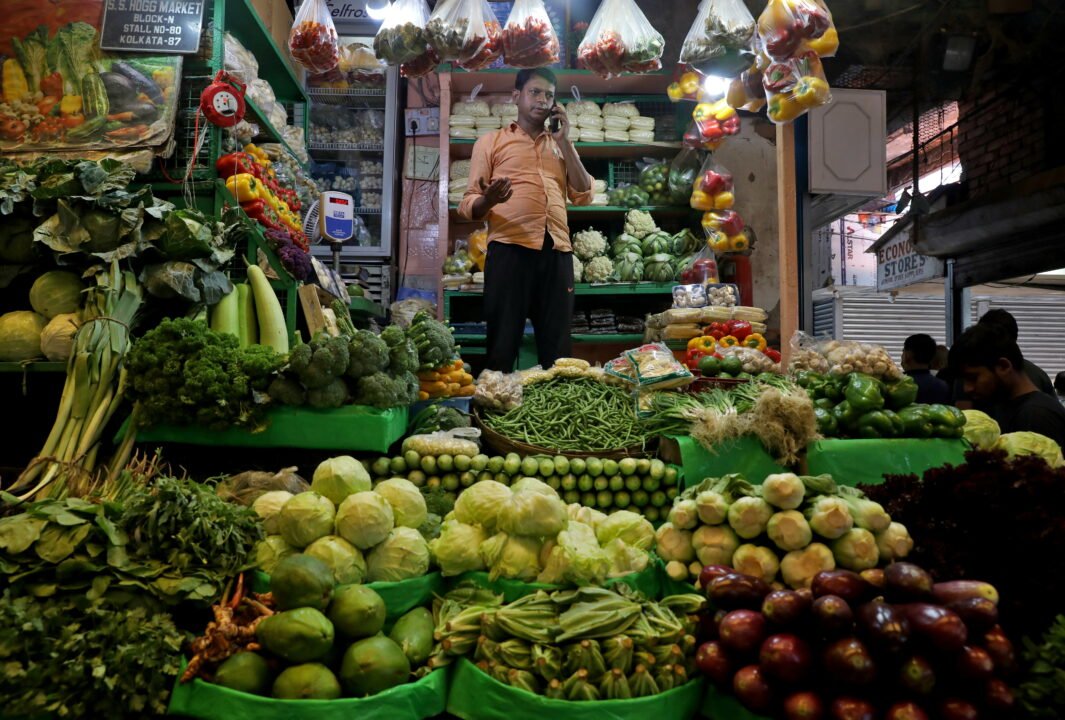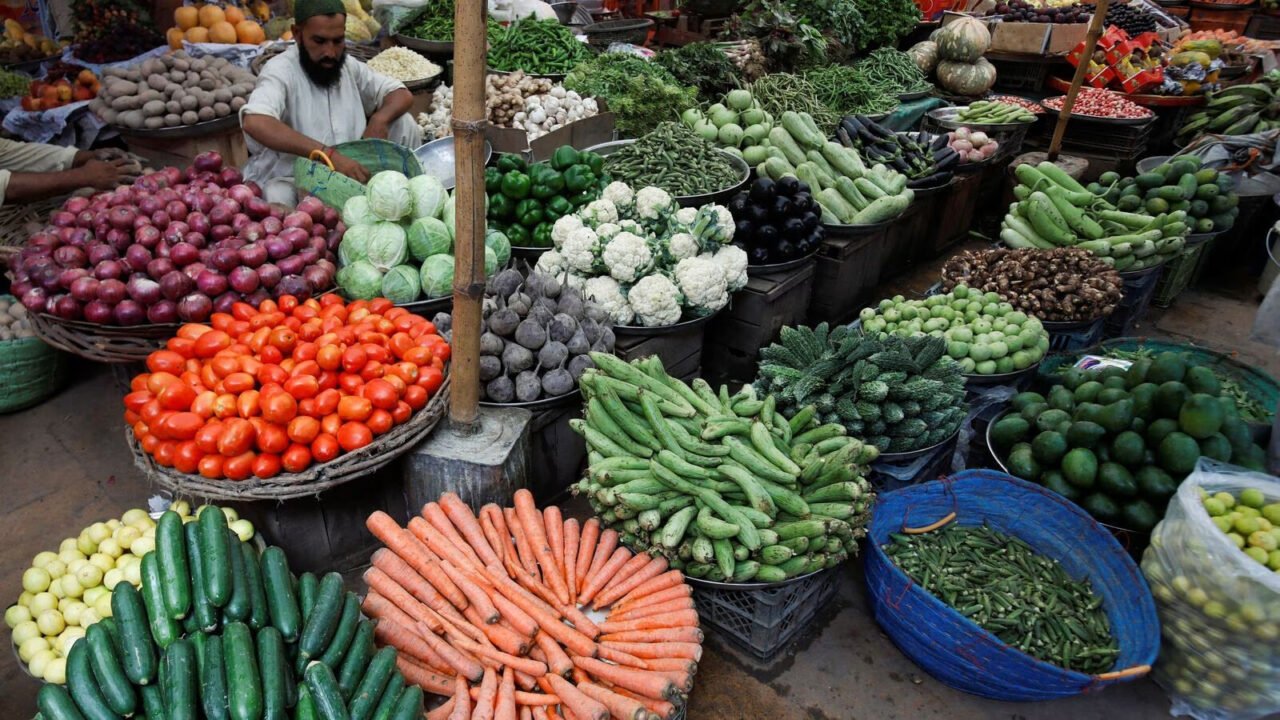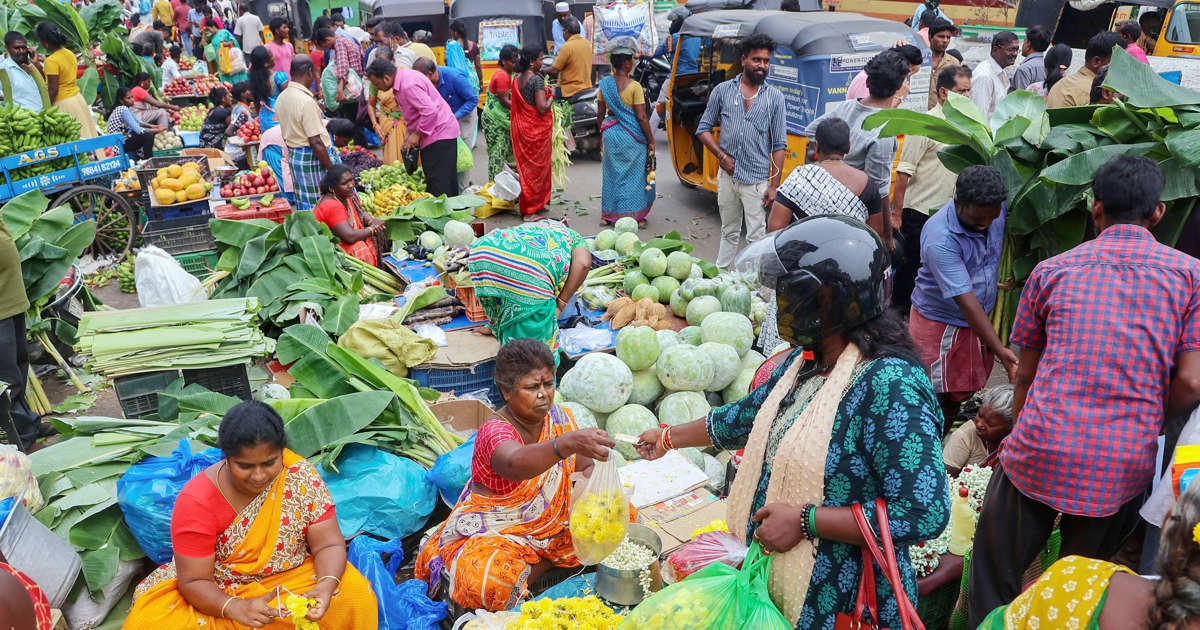NEW DELHI, Aug 22: The finance ministry on Tuesday said price pressure on food items is expected to be transitory, with tomato prices seeing a decline, but the government and RBI need to step up vigil to deal with elevated inflationary pressure. Enhanced provision for capital expenditure by the government in the current fiscal is now leading to crowding in of private investment, and domestic consumption and investment demand would continue to drive growth going forward, said the ministry’s Monthly Economic Review for July.
The consumer price index based retail inflation spiked to a 15-month high of 7.44 per cent in July 2023, with specific food commodities mainly driving the increase. Core inflation, however, stayed at a 39-month low of 4.9 per cent.
“The government has already taken preemptive measures to restrain food inflation which, along with the arrival of fresh stock, is likely to subside price pressure in the market soon… The price pressure in food items is expected to be transitory,” the report said, adding, global uncertainty and domestic disruptions may keep inflationary pressures elevated for the coming months, warranting greater vigilance by the government and the RBI.
Though food inflation in July is perhaps the third highest since the new CPI series began in 2014, only 48 per cent of food items have inflation of above 6 per cent, and this includes 14 food items with inflation in double digits, it said.
Items like tomato, green chilli, ginger and garlic witnessed inflation of more than 50 per cent. Hence, the abnormal increase in prices of certain specific items led to high food inflation in July 2023.
“Tomato prices are likely to decline with the arrival of fresh stocks by the end of August or early September. Further, enhanced imports of tur dal are expected to moderate pulses inflation. These factors, along with the recent government efforts, can soon materialise moderation in food inflation in the coming months,” the ministry said.
Going forward, while domestic consumption and investment demand are expected to continue driving growth, global and regional uncertainties and domestic disruptions may keep inflationary pressures elevated for the coming months, warranting greater vigilance by the government and the RBI, it added.
Russia’s decision to terminate the Black Sea Grain deal, along with dry conditions in major wheat-growing areas, caused the price spike in cereals. While domestic factors like white fly disease and uneven monsoon distribution exerted pressure on vegetable prices in India, it added.
During July, cereals, pulses and vegetables exhibited double-digit inflation compared to the corresponding period last year. Disruption in domestic production also aggravated the inflationary pressures. Interruption in the supply chain of tomatoes due to white fly disease in Kolar district, Karnataka and the swift arrival of monsoon in northern India caused a surge in tomato prices. Tur dal price also inflated due to deficient production in kharif season 2022-23, the ministry said.
The RBI’s interest rate setting committee had earlier this month decided to keep policy rates unchanged and remained focused on the withdrawal of accommodation to ensure that inflation progressively aligns with the target while supporting growth.
The Monetary Policy Committee (MPC) expected vegetable prices to correct in the coming months, but flagged the presence of uncertainties on the domestic food price outlook due to sudden weather events, possible El Nino conditions in August and beyond, and the firming up of global food prices. In this context, the MPC revised its inflation projection for current fiscal from 5.1 per cent to 5.4 per cent.
Cumulative rainfall during this year’s southwest monsoon season till August 18, 2023 has been deficient by about 6 per cent compared to long period average. As on August 18, 2023, farmers have sown 102.3 million hectares, which is similar to the corresponding period last year’s level and 1.1 per cent higher than the average of the last five years.
The monthly report from the finance ministry’s Department of Economic Affairs further said that the agricultural sector is picking up momentum with significant advancement in monsoon and kharif sowing. The procurement of wheat and rice has been progressing well, increasing the buffer stock levels of food grains to ensure food security in the country.
With regard to investment, the report said the government’s continued emphasis on capital expenditure is expected to drive growth in the coming years. The Union government in FY24 budget increased the capital outlay by 33.3 per cent, raising the share of capital expenditure in total expenditure from 12.3 per cent in 2017-18 to 22.4 per cent in 2023-24 (BE).
“Enhanced provision for capital expenditure by the government is now leading to crowding in of private investment, as evident in the performance of various high-frequency indicators and industry reports which highlight the emergence of the green shoots of a private capex upcycle,” the report said.
It further said the Government has been making various attempts to raise investment by the private sector. The Production-Linked Incentive (PLI) scheme is providing capital expenditure-linked incentives to 14 key sectors. The PM Gati Shakti, coupled with the National Infrastructure Pipeline (NIP), is expected to encourage private-sector participation in creating new infrastructure and help in onboarding major private sector infrastructure players.
Going forward, the PLI and new-age sectors (such as green hydrogen, semiconductors, wearables and solar modules) are expected to account for nearly 17 per cent of the capex between FY13 and FY27, it said.
“The healthy balance sheet of the private sector, with increased capex by the government, is anticipated to increase the opportunities for the private sector to participate in myriad infrastructure initiatives. The capacity utilisation in the manufacturing sector is now above its long-run average, signalling the need for additional capacity creation as demand sustains the domestic economy,” it added. (PTI)












